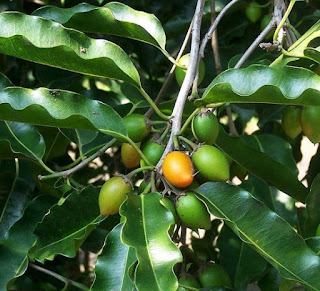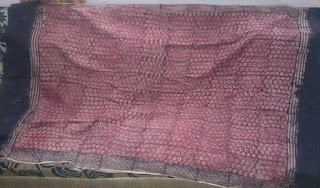Ajrakh Print Story
One of the oldest technique of hand block printing in the World
Ajrakh print is one of the oldest known
technique of hand block printing. Its history traces back to 2500 B.C. at the
time of Harappa and Mohe Jo Daro. It is to be said that few of the statues
found in these places wearing shawl depicting Ajrakh print.
It was mainly practiced in Sindh region
of today's Pakistan by "Khatri" community. It spreaded to various
parts of Gujarat and Rajasthan due to migration of few families in search of
new markets and places to avoid stiff competition.
There are interesting versions of Ajrakh
print story told by craftsmen of Gujarat and Rajasthan. The common is that
"Ajrakh" is an Arabic word which is used for "Universe" or
"Blue" color.
Story told by National Awardee Shri
Ranmal Khatriji to us, who migrated from Sindh region of Pakistan at the time
of partition to Barmer in Rajasthan. He narrated that 2000 years ago basically
four natural colors used in Ajrakh print were red, black, yellow and Indigo.
Primarily geometrical designs including Stars and the Sun and domination of
indigo blue color (Also a color of sky) in the process looks like universe has
created on the fabric and when for the first time Arabic businessmen from
Mesopotamia saw this, instantly called "ye to ajrakh hain" (Oh this
is Ajrakh) and since then it is known as Ajrakh to the world.
He also added that #Ajrakh printing was
also done on the both sides of the fabric in similar manner like
"Batik" mainly on "Lungi" for men so that it can be wore by
either of the sides. But today it is a very costly affair to print on one side
so both side printing is a matter of past.
Another version of the #Ajrakh story
told by Dr. Ishmailji Khatri of Ajrakhpur and it is a common to all the Ajrakh
lovers.
In discussion with us he told us that it
was traded to Arab countries in the past from Sindh region and Ajrakh meaning
in Arabic language is "Blue", so it is known as Ajrakh to the world.
His another version behind #Ajrakh is "aaj hi rakh" (Keep it today)
is also behind the name "Ajrakh" used for this beautiful hand block
printing art.









